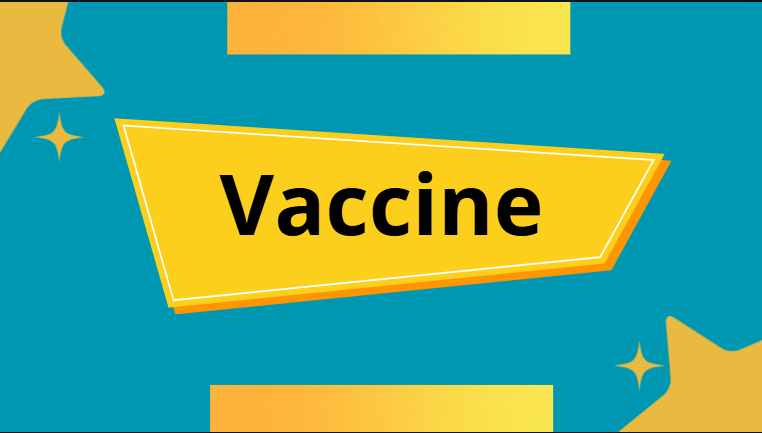A vaccine is a special type of medicine that helps protect people from diseases. It trains the body’s immune system to recognize and fight harmful germs like viruses or bacteria. Vaccines are one of the greatest medical discoveries in history. They save millions of lives every year and help stop the spread of dangerous illnesses.
What Is a Vaccine?
A vaccine contains tiny, safe parts of a virus or bacteria, or something that looks like them. These parts do not cause disease. Instead, they help the body make antibodies, which are proteins that fight infections. When the real germ enters the body later, the immune system remembers how to fight it quickly and effectively.
How Do Vaccines Work?
Vaccines work by teaching the immune system how to defend itself. Here’s how it happens step by step:
- Introduction: The vaccine introduces harmless parts of the germ into the body.
- Recognition: The immune system recognizes it as a threat.
- Response: The body makes antibodies to fight it.
- Memory: The immune system stores this information.
- Protection: If the same germ appears again, the body destroys it before it causes illness.
This process is known as immunization. It builds a natural shield inside our body without making us sick first.
Types of Vaccines
There are several types of vaccines. Each type works in a slightly different way but gives the same result—protection from disease.
- Live Attenuated Vaccines: These use a weak form of the germ (example: measles, mumps, rubella).
- Inactivated Vaccines: These use a killed version of the germ (example: polio vaccine).
- Subunit Vaccines: These use only parts of the germ (example: hepatitis B).
- Toxoid Vaccines: These use harmless versions of the toxins made by bacteria (example: tetanus).
- mRNA Vaccines: These teach cells how to make a protein that triggers an immune response (example: COVID-19 vaccines).
Why Vaccines Are Important
Vaccines are not just important—they are essential for global health. Here’s why:
- They prevent deadly diseases like measles, diphtheria, and polio.
- They protect everyone, especially babies, the elderly, and people with weak immune systems.
- They stop outbreaks and keep communities safe.
- They save healthcare costs by preventing hospitalizations.
When most people in a community are vaccinated, it creates herd immunity, meaning the disease has little chance to spread.
Common Vaccines Around the World
Some vaccines are given to almost everyone because they protect against common or serious diseases. These include:
- Polio vaccine
- Measles, Mumps, Rubella (MMR)
- Diphtheria, Tetanus, and Pertussis (DTaP)
- Hepatitis A and B
- COVID-19 vaccine
- Influenza (flu) vaccine
- Human Papillomavirus (HPV) vaccine
Doctors and health organizations recommend these vaccines based on age, health condition, and location.
Vaccine Safety and Side Effects
Vaccines are extremely safe. Before approval, they go through long and careful testing. Even after approval, health experts continue to monitor their safety.
Most people have no serious side effects. Some may feel mild ones, such as:
- Soreness at the injection site
- Mild fever
- Fatigue or headache
These side effects usually last a short time and are a sign that the body is building protection.
Vaccine Myths and Facts
There are many myths about vaccines, but it’s important to know the truth:
- Myth: Vaccines cause autism.
Fact: Many studies have proven vaccines do not cause autism. - Myth: Natural infection is better than vaccination.
Fact: Diseases can cause serious complications, while vaccines protect safely. - Myth: Vaccines are not needed anymore.
Fact: Some diseases are rare today because of vaccines. If people stop vaccinating, they can return.
The Future of Vaccines
Scientists are working hard to make vaccines for more diseases, such as HIV, malaria, and cancer. New technology like mRNA vaccines has opened doors to faster and safer vaccine development. In the future, vaccines may even be given as pills or nasal sprays instead of injections.
Global Impact of Vaccination
Vaccines have changed the world. Smallpox, once a deadly disease, was completely wiped out thanks to vaccines. Polio is almost gone. Many countries now have lower child death rates and longer life expectancy because of vaccination programs.
The World Health Organization (WHO) and UNICEF continue to help countries deliver vaccines to every child, even in remote areas.
FAQs
1. What is a vaccine?
A vaccine is a medicine that helps the body build protection against diseases without making you sick first.
2. Are vaccines safe for everyone?
Yes. Most vaccines are safe for almost everyone. However, people with certain medical conditions should always talk to their doctor first.
3. Do vaccines have side effects?
Mild side effects like fever or soreness are normal. Serious side effects are very rare.
4. Why do children need so many vaccines?
Children’s immune systems are still growing, so vaccines protect them from dangerous childhood diseases.
5. Can adults get vaccines too?
Yes. Adults may need vaccines for flu, COVID-19, or booster shots for tetanus and other diseases.
6. Do vaccines really work?
Absolutely. Vaccines have proven to save lives and reduce disease spread worldwide.
7. What happens if I skip vaccines?
Skipping vaccines increases your risk of catching and spreading diseases that could be easily prevented.
Conclusion
Vaccines are a powerful shield that protect individuals and communities. They are safe, effective, and a key part of public health. By getting vaccinated, you not only protect yourself but also help protect others around you.

